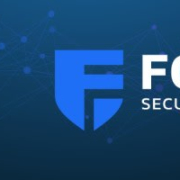

Both Commvault Cloud and Code42 Incydr compete in the data protection and management category. Code42 Incydr seems to have the upper hand with its specialized focus on insider threat detection and response.
Features: Commvault Cloud is known for comprehensive data management tools, including extensive backup and recovery features, robust data management capabilities, and support for various data sources. Code42 Incydr offers specialized security features such as insider threat detection, data exfiltration prevention, and real-time alerting capabilities.
Room for Improvement: Commvault Cloud could enhance its integration with non-traditional data sources, simplify its user interface, and improve documentation for advanced features. Code42 Incydr could benefit from better integration with other security tools, expand its support for various platforms, and enhance its reporting capabilities. Feedback differs based on their focus areas.
Ease of Deployment and Customer Service: Commvault Cloud users report a smooth deployment experience but occasionally mention complexity in initial setups. Code42 Incydr offers relatively straightforward deployment and ease of use. Both companies receive favorable reviews for customer service, but Code42 Incydr’s deployment appears simpler for organizations focusing on security.
Pricing and ROI: Commvault Cloud users find value in the long-term ROI despite potential high upfront setup costs. Code42 Incydr users find its pricing competitive with quick time-to-value, especially given its specialized features. Commvault Cloud’s comprehensive features offer substantial ROI, whereas Code42 Incydr presents a cost-effective solution for security-focused needs.
Customer support has very closed departments, requiring us to shuffle between them to get one thing done because representatives have limited accessibility.
Commvault Cloud is highly stable, and I would rate it a ten out of ten.
I feel that the support is not yet up to the mark, with not enough professional engineers to provide assistance.
Commvault Cloud is expensive, and there is room for the price to be 10-15 percent lower than what they are charging currently.
We can back up unlimited TBs due to our per node license.
Other features include endpoint solutions, integration with Office 365, ransomware protection, archival for long-term retention, and no ingress or egress charges.


Commvault Cloud is the ultimate cyber resilience platform built to meet the demands of the hybrid
enterprise. Beyond its core functionality of data backup and recovery across diverse workloads, including applications, databases, virtual machines, and files, Commvault Cloud stands out as a robust defense against ransomware. Going beyond backup, the platform integrates advanced data security features such as encryption, access control, and threat detection, safeguarding against unauthorized access and cyber threats.
With tools for data management, classification, and migration, businesses can optimize storage costs, enhance accessibility, and comply with regulations seamlessly. Boasting cloud integration with major providers like AWS, Azure, and Google Cloud, Commvault Cloud leverages the scalability and flexibility of the cloud for comprehensive data protection and management. The platform's automation capabilities streamline tasks, and its reporting and analytics features provide valuable insights into data usage, potential risks, and optimization strategies. Commvault Cloud is not just a security tool; it is a key component of cyber resilience, enabling organizations to not only protect against cyberattacks but also recover swiftly and minimize the impact of incidents. Elevate your cyber resilience strategy with Commvault Cloud.
Mimecast Incydr offers a comprehensive data protection and recovery solution, ideal for organizations needing robust insider threat protection and regulatory compliance.
Mimecast Incydr provides a seamless experience across platforms with lightweight clients and centralized administration. It focuses on real-time monitoring, instant access to backups, strong encryption, and customizable risk scoring. This ensures data protection against insider threats while promoting ease of use and low system overhead. Although improvements are possible in areas like Java dependency reduction, GUI design, cloud storage integration, and comprehensive reporting, Mimecast Incydr remains valuable for data classification, legal discovery, and identity management, especially for large environments handling classified information.
What key features does Mimecast Incydr offer?Mimecast Incydr is leveraged across industries for data leakage protection and egress solution integration. It supports HIPAA-compliant backups and peer-to-peer data management, proving invaluable for corporate data protection and traveling employees facing data loss risks. Its application in legal data discovery and disaster recovery planning enhances its relevance for IT administrators and compliance officers managing data-intensive operations.
We monitor all Backup and Recovery reviews to prevent fraudulent reviews and keep review quality high. We do not post reviews by company employees or direct competitors. We validate each review for authenticity via cross-reference with LinkedIn, and personal follow-up with the reviewer when necessary.